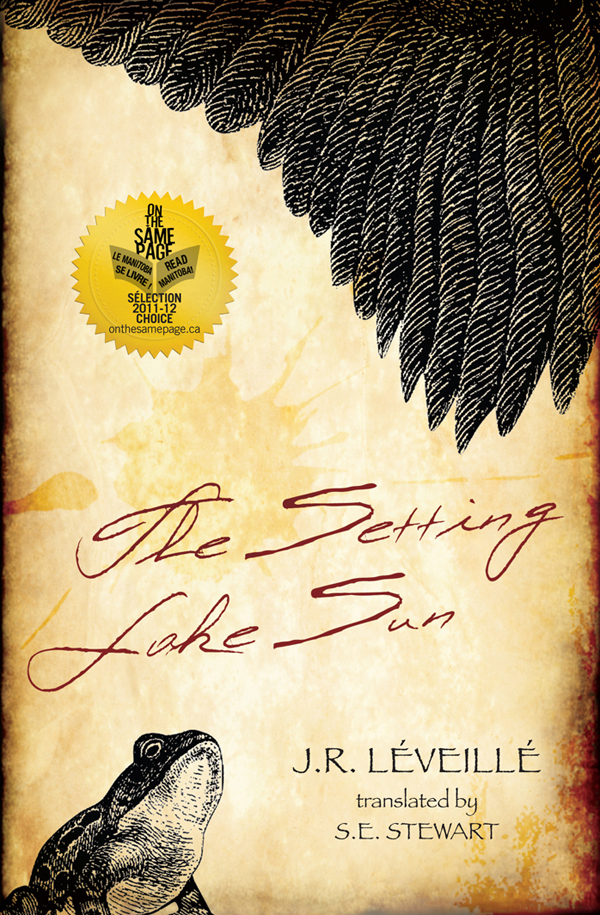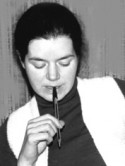
About the book
- Winner — On The Same Page
- Winner — Prix Champlain
- Winner — Prix Littéraire Rue-Deschambault
- Shortlisted for the Carol Shields Winnipeg Book Award
- Very Honourable Mention — John Glassco Translation Award
About the author

Born in Winnipeg in 1945, J.R. Léveillé divides his time between the city and Lake Manitoba country. He is now retired from Radio-Canada national television, where he was a journalist for many years and for whom he produced over thirty author and artist profiles, Léveillé is also the author of a more than a dozen works of poetry, fiction and essays. His work has been published in Manitoba, Quebec and France. Since 1980 Léveillé has worked in the literary publishing milieu of Manitoba and is often invited to national and international conferences to speak on Western Canadian literature. Léveillé has prepared anthologies and special issues for various journals on Franco-Manitoban and Western Canadian literature and he oversees the Collection Rouge, Éditions du Blé's new literature series. In 1999, he was inducted into the Cultural Hall of Fame in Manitoba for his contribution to literature.
About the translator

S.E. Stewart is an author, publisher and translator who worked for many years with the francophones of Western Canada. She studied French and English literature at McGill and translation in UBC's Creative Writing Department and now lives and works in Saskatoon.
Excerpt
° 74 °
As I entered Frank’s office I saw Ueno and Sara huddled over the proofs of illustrations and text. They raised their eyes when they felt us come in and simultaneously turned their heads to us.
“Ah, Angèle!” said Sara, quite simply.
“What a wonderful surprise,” said Ueno. “Frank told me there would be a visitor today, but I never imagined… You look good with your hair in a ponytail. And I like your shoes.”
Ueno had on a reddish-brown T-shirt, a jacket of faded khaki linen, jeans and his work boots.
He shook my hand in a way that left me breathless.
° 75 °
I said hello, timidly, but with a pleasure that must have been plain for all to see. I kissed Sara and Frank prepared a cappuccino for me.
“How are you?” Ueno asked. Turning back to the work table, he continued, “We’ll just finish up this one little thing and then we’ll take a break.”
“Don’t stop on my account,” I said.
“Not at all,” is what I expected to hear—a mere politeness—but instead he said, “On the contrary.”
I don’t know why, but I blurted out a platitude, something like, “Are those your poems?”
“Yes. And you’re going to translate them.”
° 76 °
Frank looked at me in wonder and made a small Italian gesture that I suppose means, Hey, hey!
As for me, I was dumbfounded, with no idea what to say. I heard the voices of Ueno and Sara run on like a distant hum. I could see a welter of sheets the colour of India paper, and letters swarming like black fireflies.
I would be exaggerating if I said I thought I would faint. But I suddenly found myself engulfed in a kind of darkness, with a small lantern shining out before me.
° 77 °
Then it passed. They did actually take a break. Ueno went out on the street to buy hot dogs from a vendor’s wagon. We ate them in the office. Frank brought us one of his jugs of wine.
“Rice wine?” Ueno asked him jokingly.
“Almost,” replied Frank.
I was looking at the two or three poems of which proofs had been printed. The lettering was at once simple and stylized, that was clear. But it produced a somewhat primitive look, of something handmade. Frank explained that they had used old-fashioned lead type of a kind that was no longer manufactured. As a result, there were slight variations from letter to letter in the opening and the body. Ueno told him, “There is beauty in imperfection.”
Then he leaned over to me and gently repeated, “You’re going to translate them.” He said it with the same certainty as the first time I met him when he said, “You’re Métis, aren’t you?” Not an exclamation, nor really a question. With the confidence of one who knows. A sort of innate knowledge.
“Oh, no. I’ve never done that kind of thing. I have no talent for it. I couldn’t.”
“Yes, you can.”
“What makes you say that?”
“It’s because of your dual nature.”
“You can speak French. You should do it yourself.”
“You know—” When he addressed me, he would go freely from “vous” to “tu” and back again, formal to informal, sometimes in the same sentence. I don’t know if he was doing it consciously or whether, as he said, “—my mastery of the language is not that good.”
“Neither is mine. I don’t have any particular skills and…”
“No, no. I have a feeling you can do it. You are interested in the arts, in literature, in architecture, and translation is a form of construction.”
I turned to the proofs. “I like this one very much.”
“Ah, the poem about the geese and the frogs. Why?”
“Because it’s like me.”
° 78 °
“It’s a bit sad,” I added, after a pause.
“A bit, in a way.”
“Not completely.”
“No, not altogether.”
“At the same time it’s joyful.”
“That’s natural. You see, you already have a great sensitivity for the work.”
“I don’t know…”
“Of course! On the other hand, there’s nothing wrong with failure. The translation will be for you alone. And it will give me great pleasure,” he whispered with the gentlest smile in the world. Then he added, “The geese, that’s me. The frogs, that’s you.”
Reviews
“Franco-Manitoban author J. Roger Léveillé’s next publication is something of an anomaly.
His book of fiction, Le Soleil du lac qui se couche, is being simultaneously launched with its English translation, The Setting Lake Sun. (The French version…” >>
— Robyn Maharaj Prairie Books Now
“This quiet, elegantly suspended story generates an aura that is softly enfolding, stirring respect for elusive connections and a gentle engagement with mysteries.” >>
— The Globe & Mail
“The book's low-key narrative style, despite the book's major events, lends the whole book a still centre, a tumultuous quietness much like Ueno's presence in the narrator's life. In the end, it's a story as brief as a kiss can…” >>
— Uptown Magazine
“This engaging and deceptively simple novel, only ninety-two pages long, tells the story of a love affair between a young Metis girl, Angele, and a much older Japanese poet, Ueno.
Angele belongs to the artistic milieu of Winnipeg. A…” >>
— Susan Haley The Fiddlehead
“Some would say that The Setting Lake Sun is a love story, and some would say that it’s a love affair between two cultures. Some would say that it’s a sexual exploration, and some that it’s a religious journey into…” >>
— Prairie Fire Review of Books
“A bit of publishing history came to Saskatoon recently when French and English versions of the same novel were launched simultaneously at a McNally Robinson reading.
The novel, Le Soleil du lac qui se couche in its original…” >>
— Verne Clemence The Star Phoenix











 Back to top
Back to top